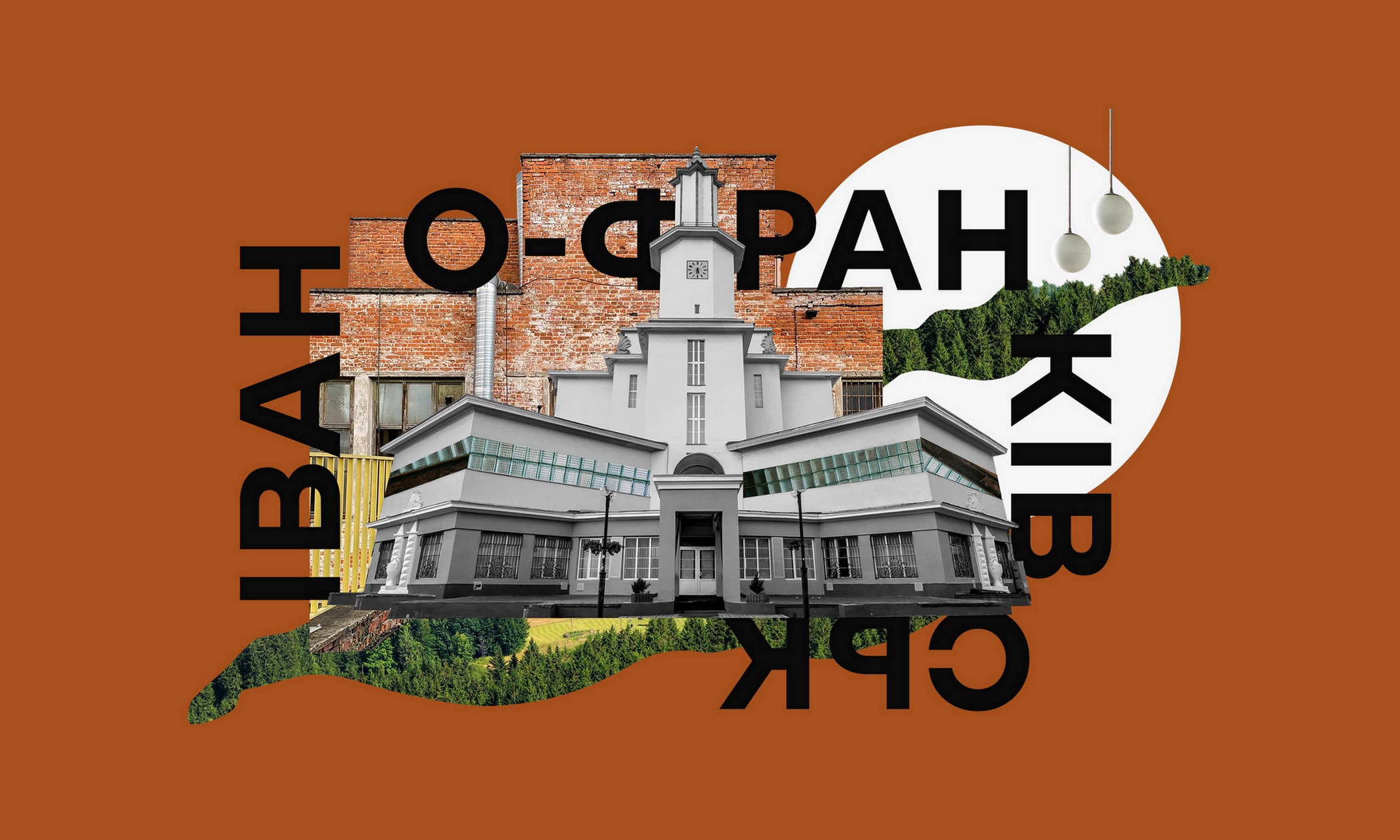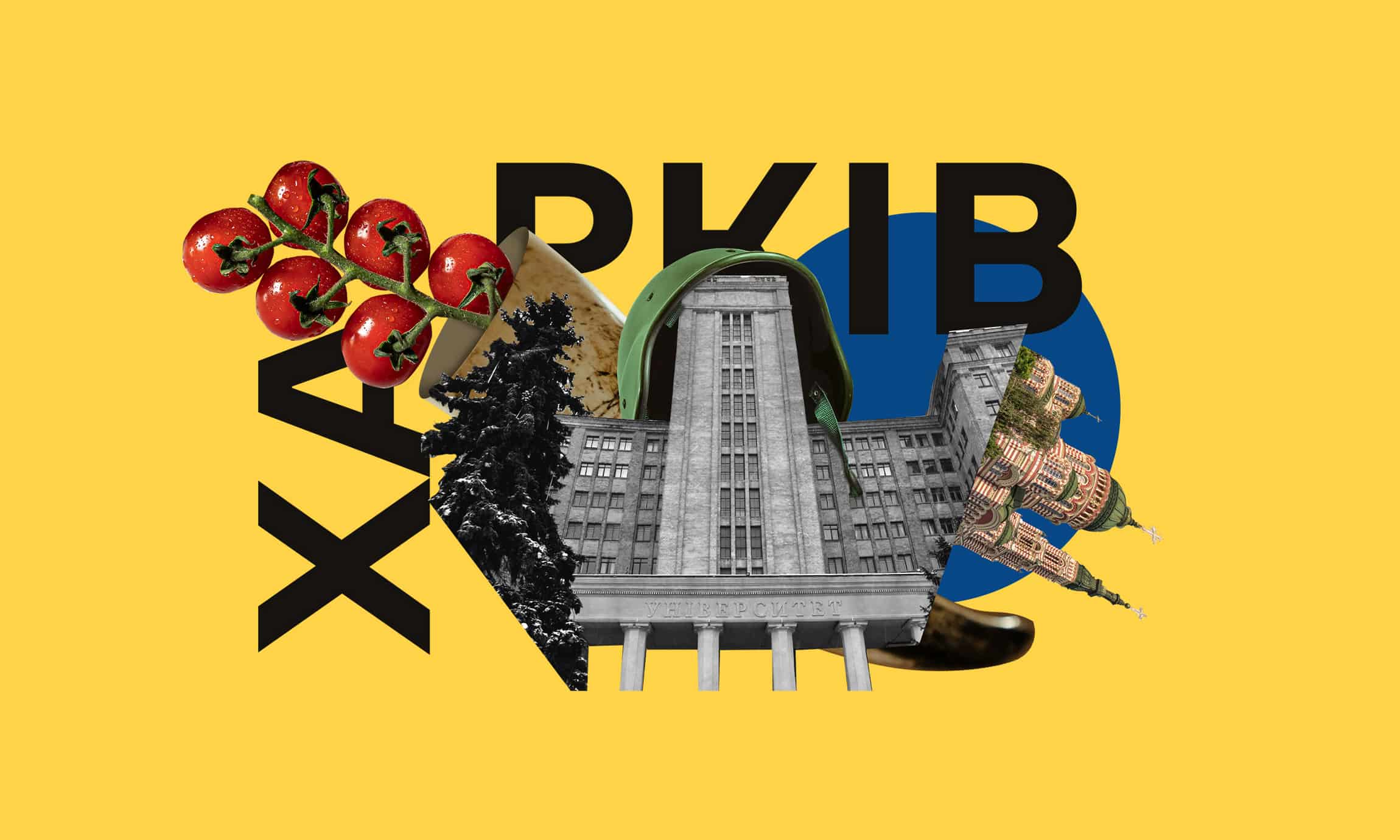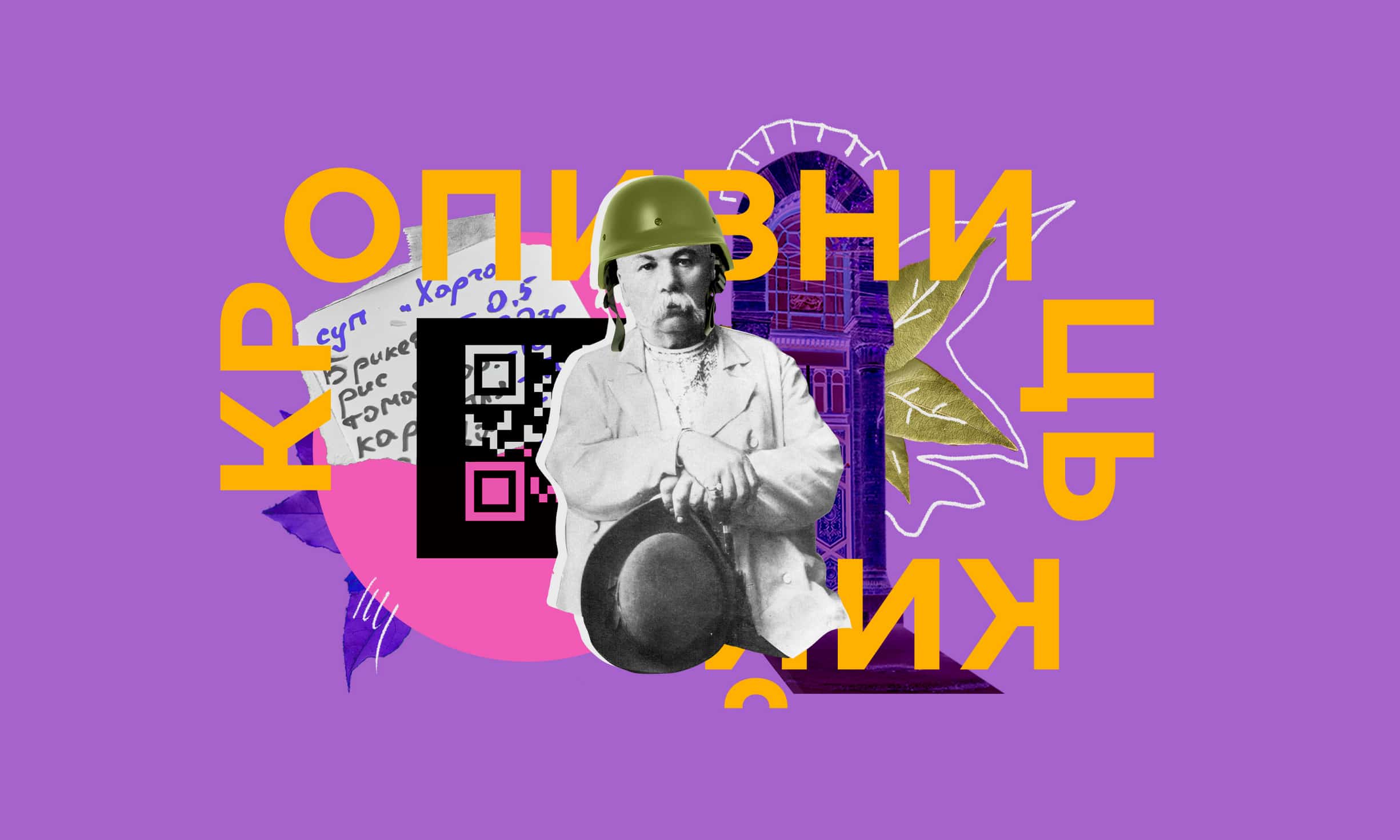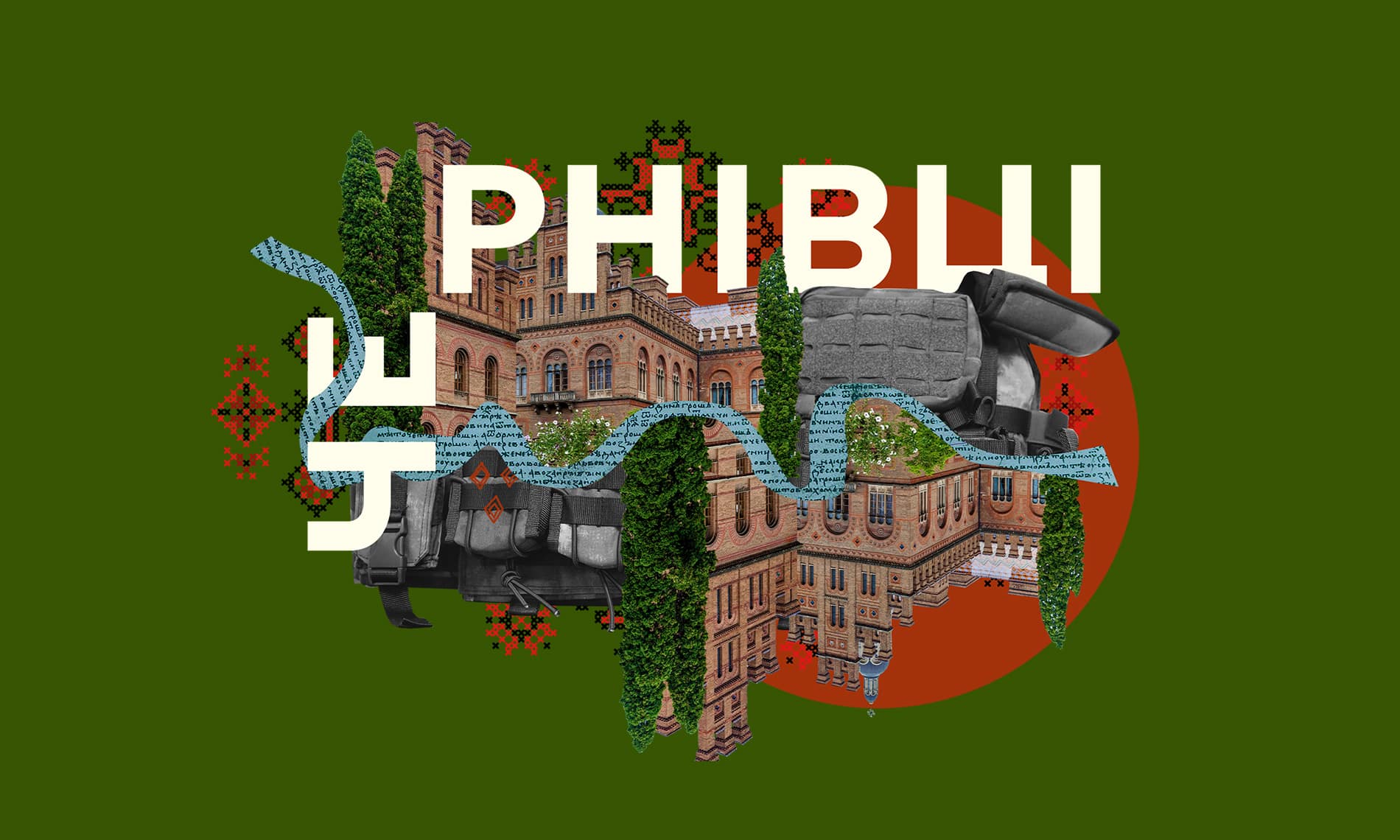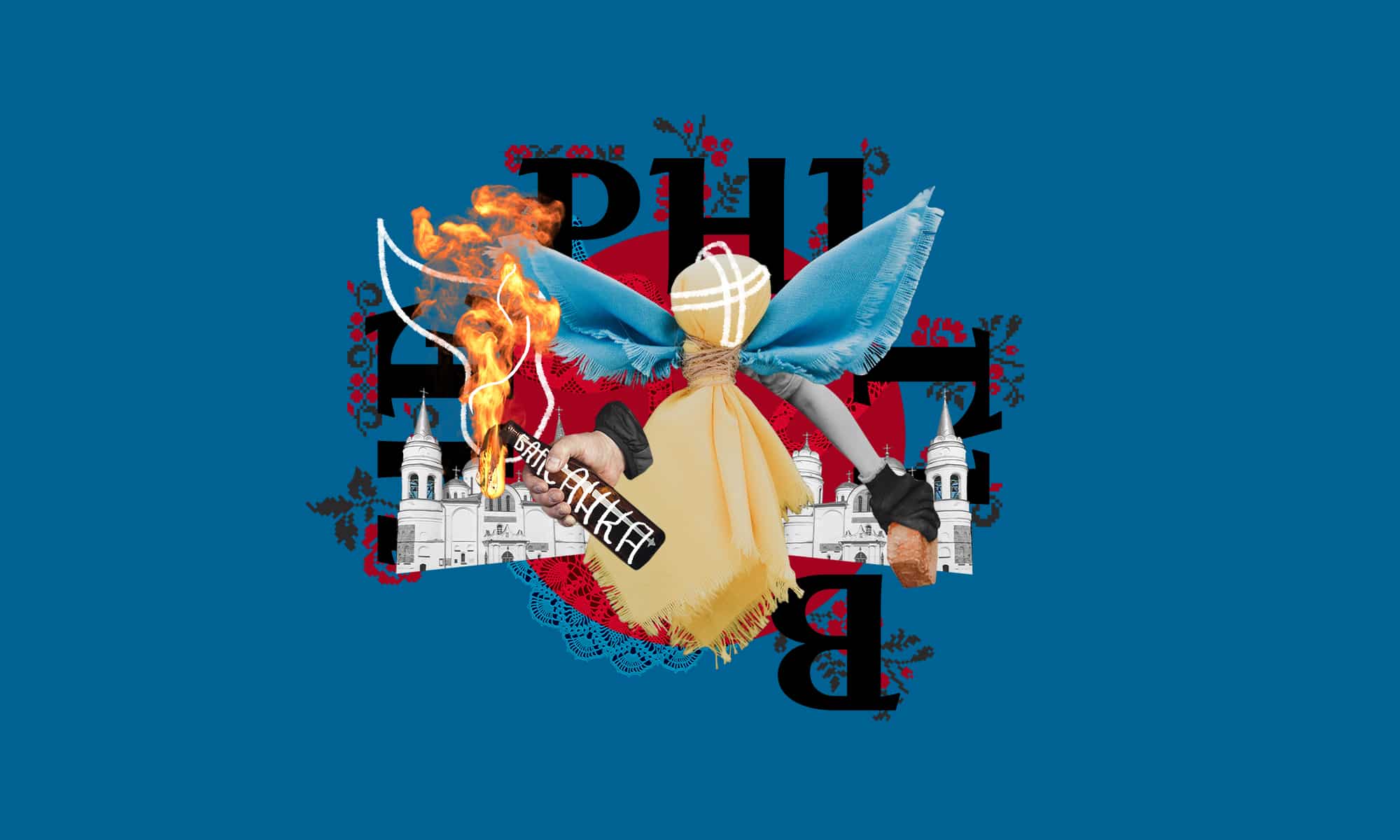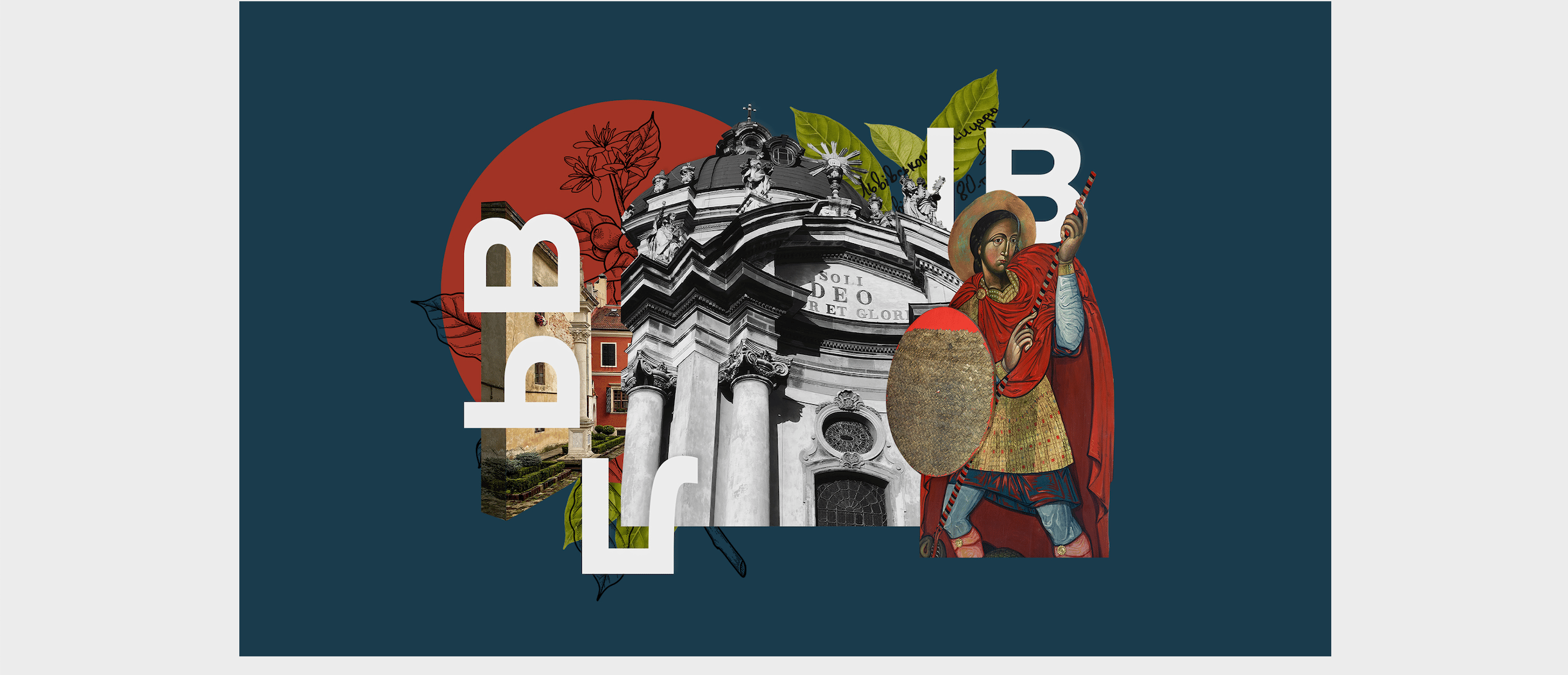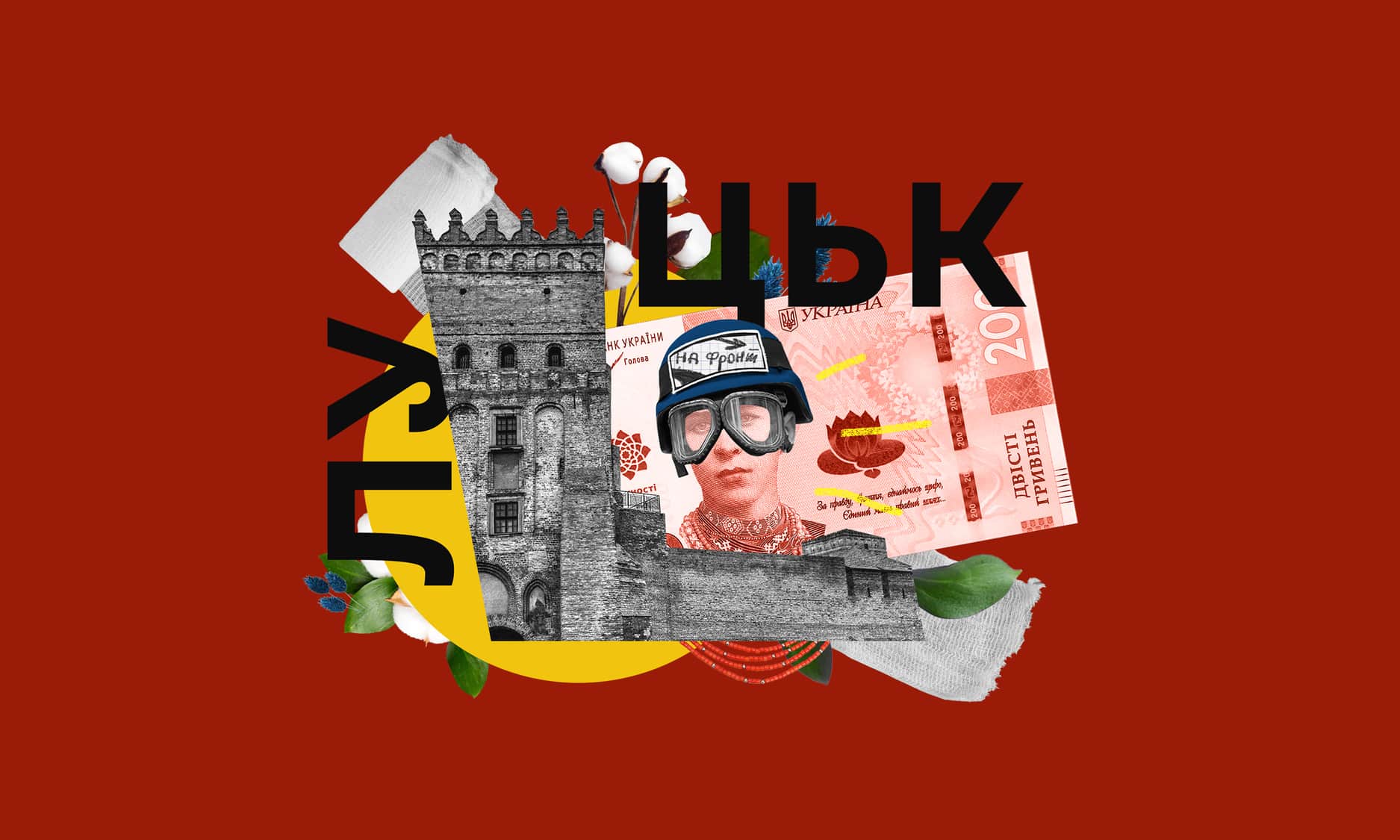Ivano-Frankivsk had enjoyed the reputation of a city developing its public sector well before the full-scale war broke out. Cultural and educational initiatives had been launched here, as well as new formats of collaboration between society and state authorities. Businesses used to be set up which made the city’s space for people more comfortable.
Thousands of Ukrainians picked this city as a place for their temporary residence. In this piece we will tell you about how the city has changed since the beginning of the war.
Promprylad.Renovation: 50 success stories
In 2019 a proactive community of Ivano-Frankivsk bought out an old plant «Promprylad», having set about renovating it. Today it is a center for innovations that has created over 300 jobs. The goal of the project was to launch a creative cluster where people could share their knowledge and improve each other’s life. That’s why before the Russian full-scale invasion «Promprylad» had been organizing regular educational, urban and art events, as well as holding lectures and master classes.
With the beginning of the Russian invasion Promprylad.Renovation began operating with restricted access for safety reasons. Access to its premises is now being granted only through the procedure of personal accreditation. This is required by the martial law that was introduced in the country. However, since mid May 2022 the center has been working in its usual format. It is now open for anyone willing to visit it.
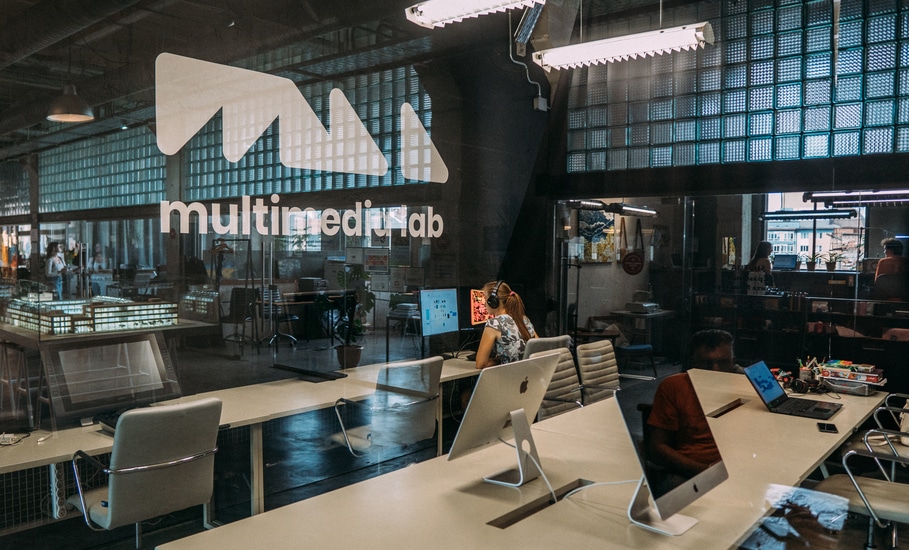
From the very first day of the great war the center’s team began working to support Ukraine. Together with the city council and local businesses «Promprylad» created a Coordination Center to support Ukrainian resistance under the hashtag #SaveUkraineNоw, concentrating their resources on helping the Armed Forces of Ukraine (AFU) as well as territorial defense battalions of Ivano-Frankivsk that were being dispatched to the frontline. #SaveUkraineNоw began mobilizing resources to cover informational, legal and material needs of Ukrainian defenders.
«We have already raised over 1.7 million USD, having helped with bulletproof vests, helmets, thermographic cameras and other equipment for a territorial defense battalion that was dispatched to the frontline. At the moment our center is delivering equipment for one of the battalions fighting on the frontline», says Renata.
The second area of the center’s focus is humanitarian aid. Its partners work to provide medications, clothing and other stuff needed by battalions and people affected by the war. At first, aid was predominantly delivered to Kharkiv and Sumy, but with time the geography of the Coordination Center’s activities expanded.
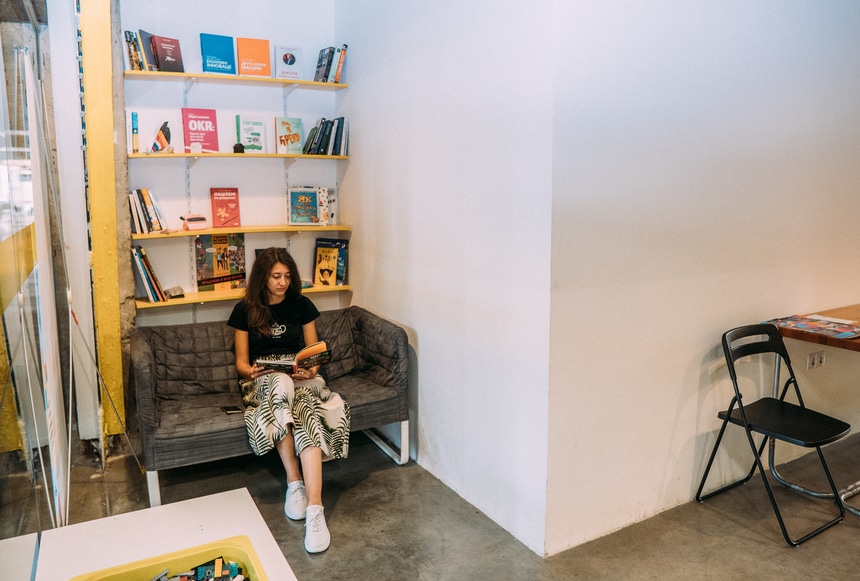
«In the third week of the war we created yet another platform, a center of business support called Save Business Now since economy is one of the most important things to take care of in the times of war», says Renata. «Within the framework of this initiative the team of the project began, first of all, helping relocate businesses. As of now, we have already had 50 success stories. These are businesses that have relocated their production capacity in teams to Ivano-Frankivsk and the eponymous province».
Currently, the foundation Save Ukraine Now regularly organizes different charitable events. As for «Promprylad», recently its team organized an off-line business summit BRAVE. Alongside with partners they worked out a full-day agenda that featured 40 speakers from across Ukraine who spoke on three different topics — export, innovations and future. 50% of the proceeds from tickets were donated to the foundation #SaveUkraineNоw.
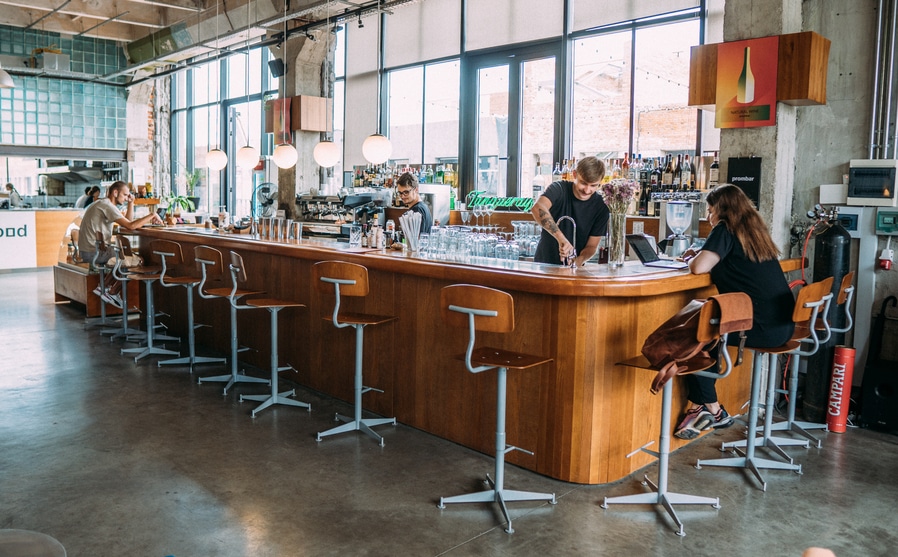
This is how Renata explains the motivation to keep working:
«A crisis is something that reveals and aggravates everything. The way we will evolve as a society in 10 years from now depends on how we will live through it. Some may avoid responsibility and keep hiding, or ignoring it. However, our position is quite clear – we are rising up to the challenge and never get our feet off the gas pedal».
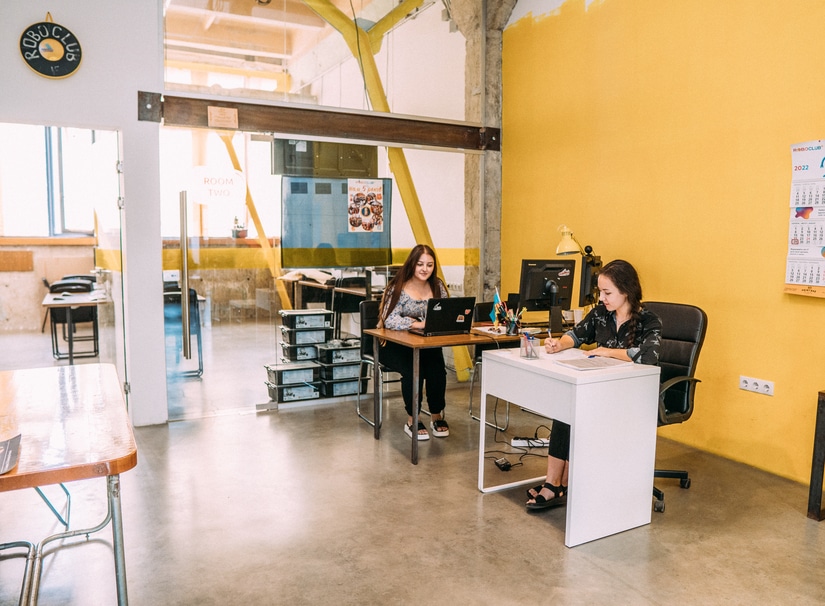
The Ivano-Frankivsk Drama Theater: running so as not to stand still
The Ivano-Frankivsk Drama Theater is the first professional Ukrainian theater located in Prykarpattia (a physical geographical region for the northeastern Carpathian foothills — translator’s note). Almost for one hundred years classical works of Ukrainian playwrights have been staged there, as well as works of Western writers and contemporary plays.
However, with the beginning of the full-scale war the theater suspended its work. Its team had to think how to keep afloat. A decision was made to stage plays in big underground venues, where the theater used to stage «Hamlet» before the war.
«We now refer to the place «Stage-Basement», says the commercial director of the theater, Lesya Bilan. «It is the fifth venue where we have staged our plays so far. After the war began we have not been able to concentrate on art. We’ve been thinking about how to fit basements into full-fledged bomb shelters. City residents, actors and people connected to art from other cities hide here when air raid sirens go off’.
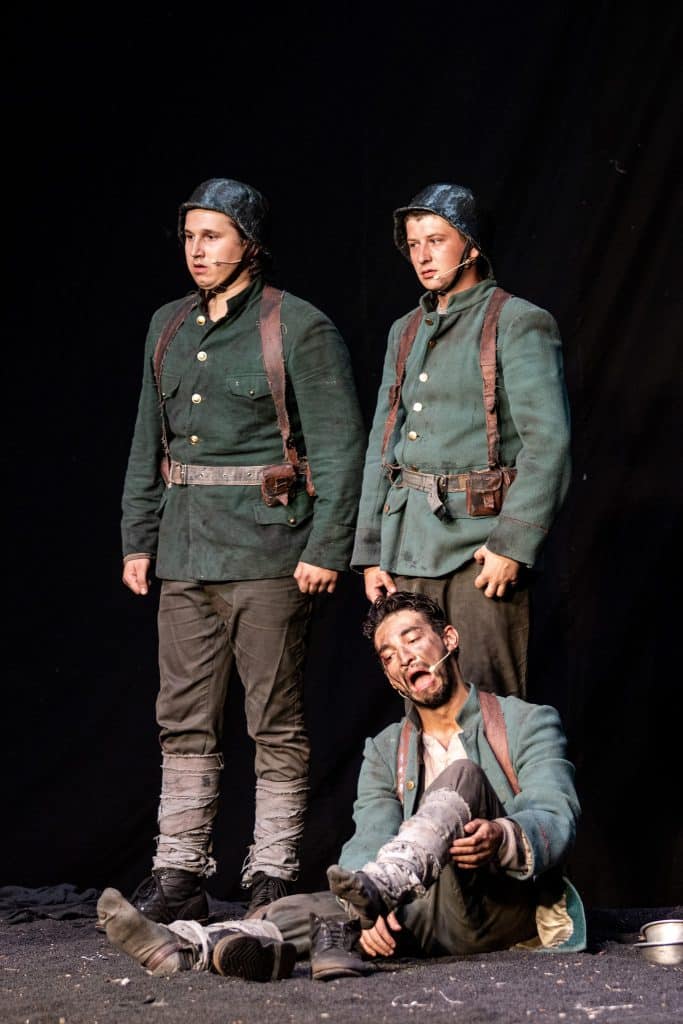
Eventually we were faced with the need to help soldiers who went to war. That was how we came up with the idea of refitting the theater into a humanitarian center «Rukh oporu — Rukh dopomohy» (the Ukrainian for «Resistance movement — Aid movement» — translator’s note) that is still functioning».
The theater began collecting clothes, food, hygiene kits, etc. At first we were not harboring any special hopes for this decision to produce any results. However, a few days later the volume of aid was measured in big cargo trucks. The theater’s actors and staff left the stage and began volunteering.
The theater has also commenced cooperating with the coordination center #SaveUkraineNоw. Whereas its partners have mostly been focusing on helping the AFU, the theater’s staff have mainly been providing aid for forcibly displaced persons.
«There has been no contest whatsoever between volunteers working in the city. We were working together like one unit, helping each other out with necessary stuff», says Lesya.
The team got back to performing last March. Lesya says that they were not sure if this was needed in the context of a new reality. First, the play «Aeneid» was staged. Afterwards, it was turn for «Hamlet» as a «thank you» for the British people. And so the minor project «Theater in a bomb shelter» was launched, when the theater’s troupe were performing for free, in particular, for internally displaced persons (IDPs).
«Performing was something that we required ourselves», says Lesya. «However, IDPs needed it even more. They came to us all reserved and withdrawn. After the performance, they were shining. It offered them an opportunity to release emotions and have a good cry».
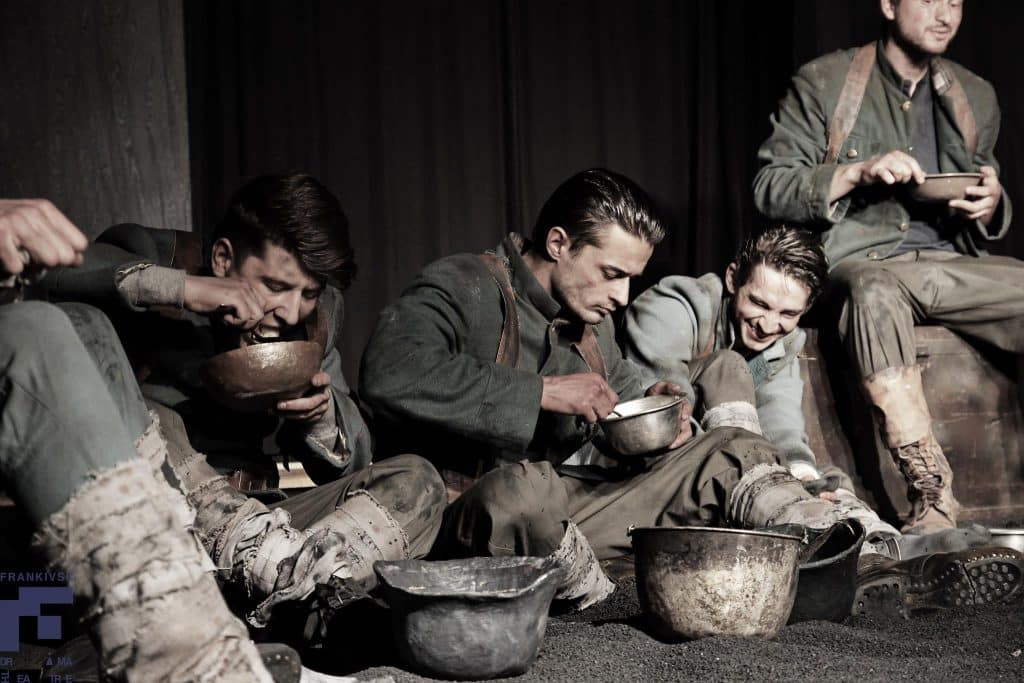
Another area of the theater’s activities was restoring historical injustice. Thus, the project «Stolen songs» was implemented. With the support of Ukrainian artists the audience was told a story about Ukrainian songs that Russia had arrogated to itself. For example, the song «Arise, My People» that was reinterpreted by Russians into «The Sacred War» or «Arise, Great Country». Musicians and actors also performed original songs that visitors can listen to when visiting the theater’s pages on social networks. In doing so, the theater performed a sort of a ritual of returning to Ukrainians something they had been deprived of.
This mission has also been undertaken by the art project «Fight for Ukraine». This is a joint project launched by the theater and the National Presidential Orchestra featuring Ukraine’s prominent artists.
«Fight for Ukraine» consists of three blocks: spiritual academic music, performances and theater mysteries based on works of Taras Shevchenko, and Ukrainian patriotic songs. In between the blocks a moderator recounts unknown ages of Ukrainian history to the audience, debunking myths and mendacious narratives promoted by Russia.
The project is performed for free with the charitable idea behind it. It has been demonstrated in over five Ukrainian cities. Proceeds are donated to the Ukrainian army. The team of the theater has managed to buy a truck for Ukrainian soldiers. Another acquisition is in the offing.
The theater keeps covering humanitarian needs, however, the volume of their contribution has significantly decreased. In parallel, the team is thinking about new ways of presenting the theater art to the public. They realize that the audience needs high-quality Ukrainian content and that their theater may become the driving force behind this process in Ivano-Frankivsk. All plays based on works of Russian playwrights are no longer performed on its stage, whereas the Ukrainian repertoire has been updated.
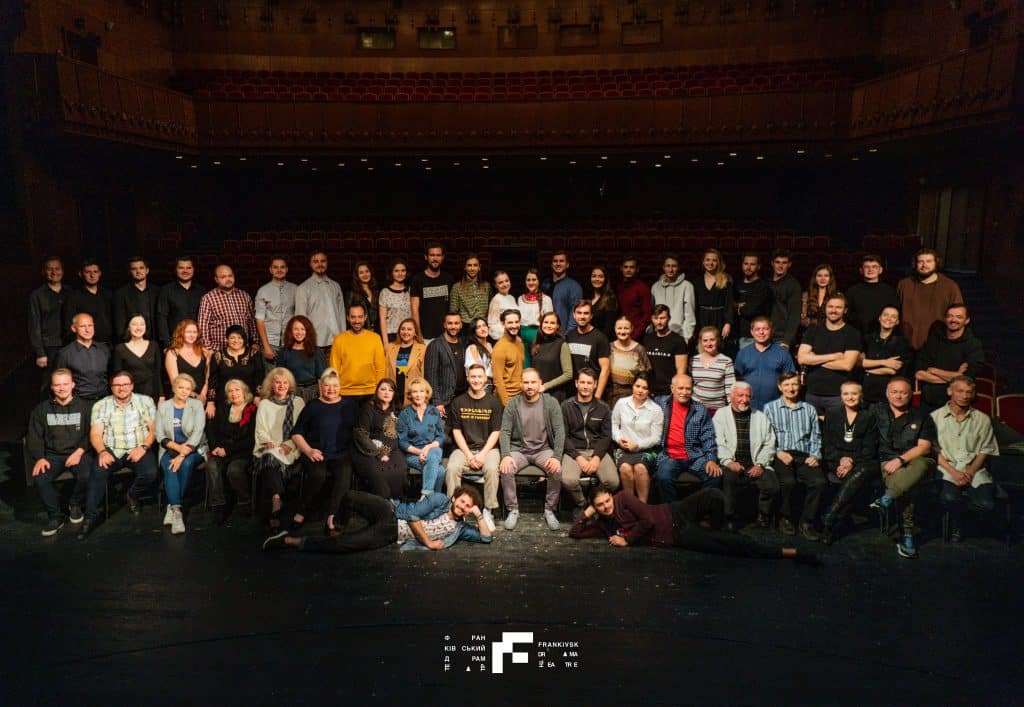
Lesya joined the theater’s staff after having worked in the banking sphere. A phrase spoken at the theater, which struck the chord with her the most and by which she has been guided after the war broke out, is:
«I remember people always telling us, «If you are not running and only walking, you are basically standing still». That was how we understood that if we stopped moving we would lose our enthusiasm, being forced to teach visitors from scratch to go to the theater».
In the theater a new season has started. You can check the calendar here.
The Underground Passage Vagabundo
Before the full-scale war regular exhibitions, lectures, stand-up sessions and film screenings used to be organized at this art space. Literary evenings took place here. Exhibitions of Ukrainian artists were regularly updated. After the invasion the space was shut down for several days, having eventually resumed its operations to the full. Currently, the Underground Passage Vagabundo is hosting exhibitions, lectures and film screenings. Thanks to the fact that the space is located in a basement and is therefore safe, children are also welcome there. The organization «Kut» (the Ukrainian for «corner» — translator’s note) offers to mold, take theater classes, etc. Also, internally displaced children are also welcome.
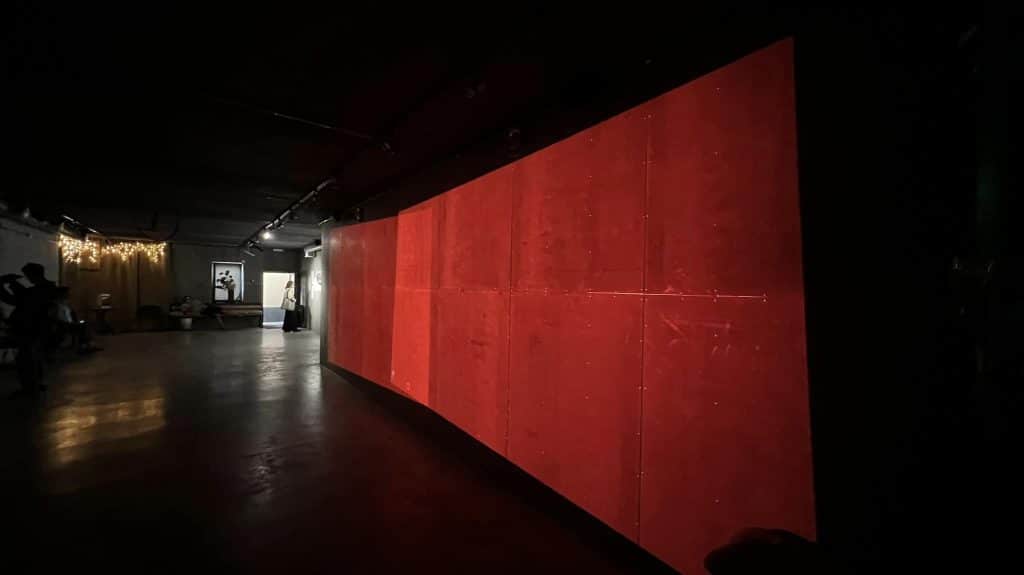
Vagabundo also regularly hosts charitable events. Anatoliy Zvizhynskyi, the curator of the center’s visual department, says that these events are organized by representatives of other initiatives. Last June, for example, money was raised for a truck for the AFU during one of the concerts. At another event funds were raised to help the mother of the fallen activist, Roman Ratushnyi, and a soldier wounded on the front. Vagabundo also provides direct help to soldiers fighting in combat zones.
Funds are raised in different ways. Sometimes it is done during one of the events, and at times Vagabundo donates proceeds from ticket sales. The space can also raise money by selling works that are being exhibited. This was the case when works of a smith from Sweden, Ludwig Odmen, were put on display at Vagabundo. Anatoliy says,
«Smiths are part of a close-knit fraternity spread across Europe. They have launched a foundation that helps Ukraine. An ambulance has already been delivered to the Ukrainian army fighting on the frontline. It was acquired on the proceeds from Ludwig’s works sold in Sweden. The foundation will also receive money raised through the sale of paintings exhibited in Ivano-Frankivsk.»
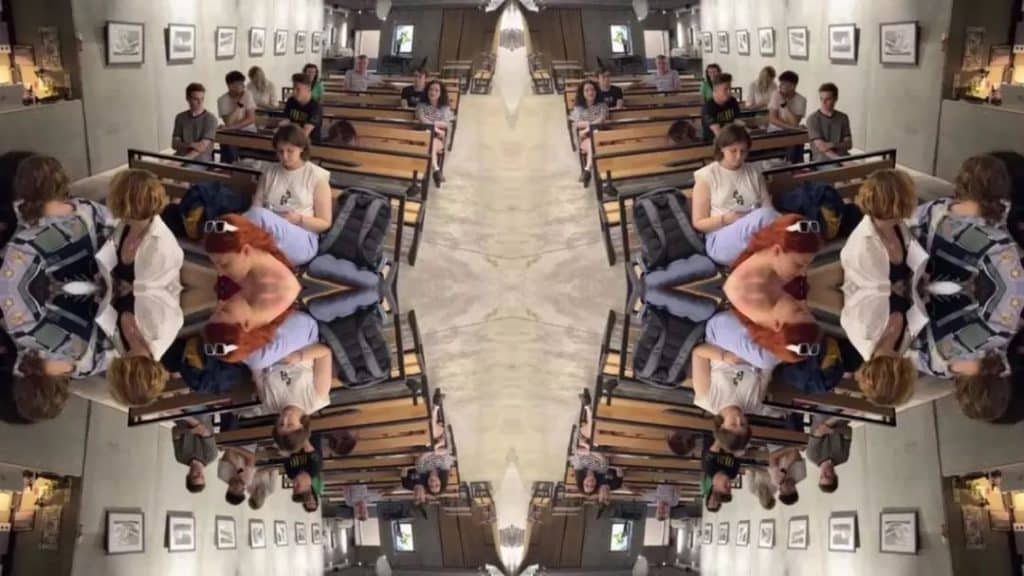
Caritas in Ivano-Frankivsk. Seven areas of aid
Caritas in Ivano-Frankivsk has been helping people in need for nearly 30 years. The foundation works in 7 areas. Some of these are help provided for people with disabilities, for those who find themselves in difficult life circumstances, war veterans, forcibly displaced persons, etc. At the beginning of the all-out invasion the foundation’s workload quadrupled due to large numbers of displaced persons in the city and its province.
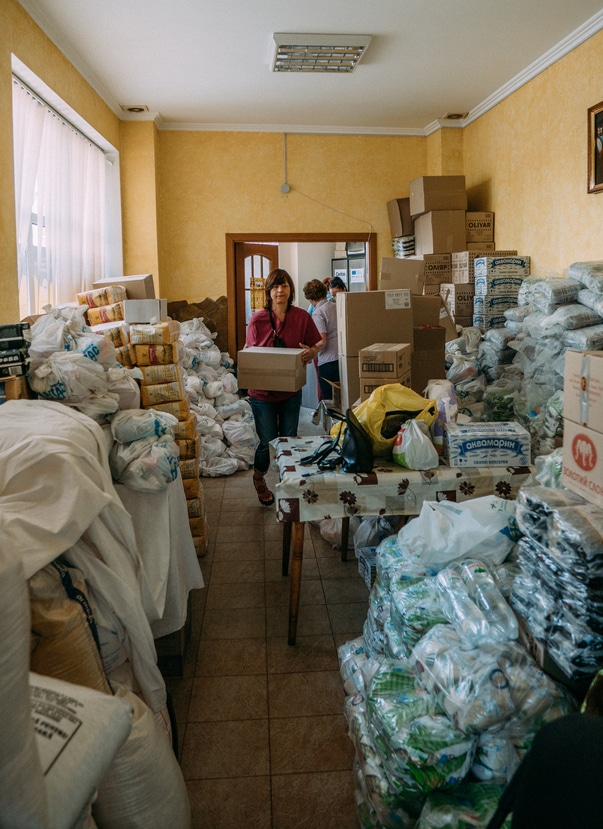
«We began receiving displaced persons on February 27», says Nataliya Kozakevych, deputy head of the foundation in Ivano-Frankivsk. «We organized a free canteen in the city center that served 300 lunches every day. We also provided urgent humanitarian aid, e.g., water, food products, clothes and food for children, hygiene kits, kitchen utensils, blankets, pillows, etc. People were coming to us literally holding a small suitcase in their hands that was all but empty. We began taking care of their requests that they indicated during the process of registration».
The team of the foundation came to realize that the provision of mental health aid was also necessary. Displaced persons would often feel anxiety and be disoriented, suffering from panic attacks. At first, these people were offered help by volunteers who were also therapists. However, eventually the foundation launched a separate line of work where help began to be provided by experts in the field. They treat traumas suffered by children and adults, also counseling them on their problems as well as organizing group therapy sessions.
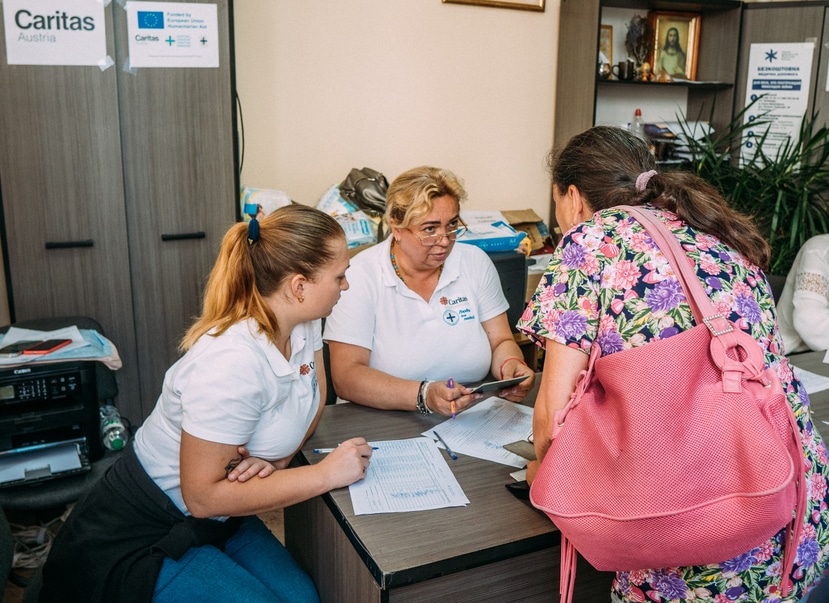
When the number of requests sent to the foundation reached the mark of tens of thousands, Caritas convened a meeting with representatives of local authorities and communities of the Ivano-Frankivsk and Kalush rayons. Additional centers for providing aid for displaced persons were set up. Now the foundation covers almost each community of the region by delivering urgent humanitarian help for people.
Nevertheless, the foundation’s resources were quickly depleted. Last May its team established criteria for selecting displaced persons who needed help. Such an approach helps determine those who need aid more than others. Although people have recently begun returning to their homes, the influx of new people coming to the city has not fully disappeared. The foundation weekly receives over 500 people (coming to the region in search of help).
«Caritas Ivano-Frankivsk» also helps IDPs move, since many of them are still living schools and kindergartens that were opened last September for a new school year. The foundation has also launched a program of scholarships granted to people to rent accommodation for the period of three months. During this period of time a case manager will be working with IDS, whose task is to help secure a place for a kid in the kindergarten or find a job for adults.
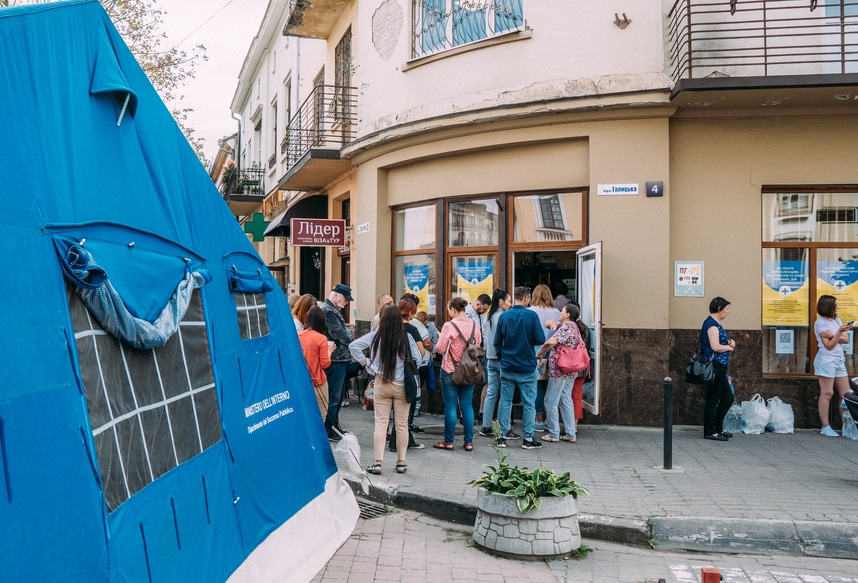
Also, within the framework of cooperation with international partners a program of financial support has been launched for those I would like to run their own business or have just set up a new one. For this purpose, each internally displaced person receives $1000. Also, Caritas is planning to support local entrepreneurs so that they can employ forcibly displaced persons.
The organization is also providing legal assistance. Its experts counsel people on legal matters, visiting communities and helping in the field.
«We are trying to provide across-the-board support», says Nataliya. «When we serve free lunch, we don’t do that mechanically just like in a canteen. We talk to people, we understand their needs, while also trying to meet them. For example, our social workers visit families of displaced persons that have many children. After such visits they come up with ideas of organizing events for children to entertain them. That’s how the geography of our help (and everything that goes with it) expands».
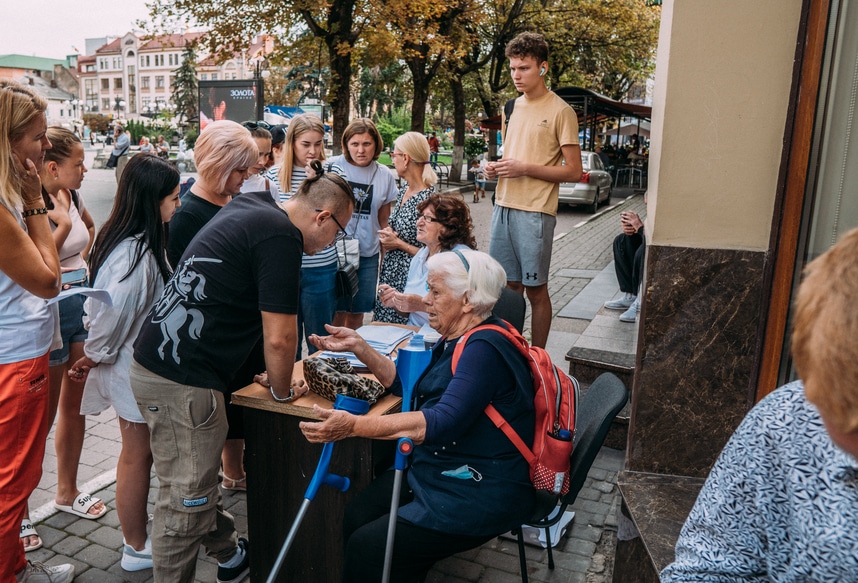
Nataliya allows that the staff of the foundation have grown exhausted during this time. There were days when as many as 1200 free lunches were served. However, she says that it is at that very moment when you start believing that you have no more strength to carry on, you get your second wind.
«Our city has changed a lot since the full-scale war began. We have become more humane, open, and I guess, kind. War takes many things from you, but it also gives you an incentive to develop».
Tour guide through Ivano-Frankivsk
Places to see
1. Stometrivka
It is perhaps the most famous street in the city. Stometrivka (the Ukrainian for «a distance of 100 meters» — translator’s note) is a meeting place, the main street for bars and restaurants, as well as a place where youths enjoy hanging out. The street leads to the Rynok Square, where lots of street musicians perform, raising money for the AFU.
2. Ratusha
Ratusha (the Ukrainian for «city council» — translator’s note) is a «must-see». After the war broke out, Ratusha was closed for quite a long period of time. In June it was opened once again for visitors. From the observation deck on its top one can enjoy a beautiful view over the city.
3. Vintage doors
In 2016 an initiative «The Ivano-Frankivsk to be preserved» was launched to preserve antique doors. Activists restored antique doors, at the same time promoting a caring attitude to historical heritage among residents of the city.
Today the team of activists has already restored over 40 doors. The majority of them are located in the city center, so one can set off on a quest searching for them. The restored doors bear the sign of the organization. To learn more about the initiative please go here.
4. Vovchynets hills
Since active tourism has been put on hold in most Ukrainian cities, its residents are beginning to venture into forests more often (it goes surely only for those regions where such tours are not forbidden). It is safe to wander in the mountains and forests of Ivano-Frankivsk province, so local authorities offer excursions to the Vovchynets hills. This is a mountainous area located on the outskirts of Ivano-Frabkivsk, where the river of Bystrytsia Nadvirnyanska flows. From the hills the city can be seen in full view.
After the war began, participants of the excursions out in the hills have also been taught some skills needed to rescue people.
Where to eat
1.Urban Space 100
https://www.urbanspace.if.ua/uk#top
https://www.facebook.com/urbanspace100/
This is one of the most famous public spaces in Ukraine that supports social development initiatives in Ivano-Frankivsk. 80% of the proceeds is spent on various projects that make the life of the city residents more comfortable. Over 100 of such projects are being currently implemented, from the ones dealing with improving the quality of air in the city to those aimed at refurbishing the museum of local history. Urban Space 100 is actually a crowdfunding platform that works in the format of a restaurant, radio station and a shop of local Ukrainian goods.
Today, Urban Space 100 hosts theme-based lectures on war and mental health. It also donates money to the AFU.
You can learn more about the initiative in our interview with the co-founder of the «Temple Misto» (the Ukrainian for «warm city» — translator’s note), Yuriy Filyuk, who also worked on developing Urban Space 100.
Address: Mykhailo Grushevsky street, 19
This coffee shop was opened by IDPs from Kherson (a couple, Kostya and Polina with their friends, Ivan and Anya). Their shop is an opposite number of a cafe located in their native city, to which they currently have no access.
Address: Hetman Mazepa street, 164.
This shop also offers you grilled dishes or dishes baked in an original oven, as well as wines from across the globe. It is popular because of its delicious food and reasonable prices.
Corassini is located in the Bastion, the city’s main place of interest. This fortress gallery is located on the place where defensive walls of the city were once situated. Now it’s a perfect place for walks, so when air raid sirens go off, you have nothing to worry about.
Address: Saint Andrew’s Bastion, Fortress alley, 1.
This is a public space/coffee shop that was also set up by IDPs in collaboration with locals. You can rest here, as well as work or attend a cultural event. Lectures on psychology and board games sessions are often held there.
Address: Nezalezhnosti street, 87A.

